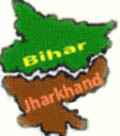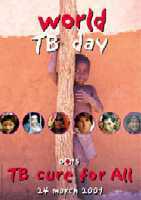
NGOs
Seminar On
Poverty
FundingAgencies
NGO'sMart
Chat
Helpline
News
MessageBoard
Links
ContactUs

|
|
|
Bihar Times
News
Unauthentic record of no. of HIV and AIDS patients in Bihar

It has become extremely difficult for the State AIDS Control Society (SACS) to compile authentic data on the number of HIV positive and AIDS cases in Bihar as the society has not been receiving any information regarding the mandatory blood tests conducted by private as well as some government-owned blood banks.
The National AIDS Control Organisation (NACO) has made it mandatory for all the blood banks to carry out HIV, hepatitis, malaria and venereal disease tests on every blood sample and submit their data to the SACS on a prescribed format. The failure of the blood banks in sending their data indicates that they are probably not conducting the mandatory tests. It is a clear violation of the Drug and Cosmetics Act. SACS has been frequently drawing the attention of the state drug controller to this apathy on the part of the blood banks for the last three years.
Despite non availability of accurate data, NACO has decided to give ELISA Readers to 14 major blood banks of Bihar and Jharkhand shortly. Six blood banks located at the Patna Medical College Hospital, Nalanda Medical College Hospital, Patna, Darbhanga Medical College Hospital, Jawaharlal Nehru Medical College Hospital, Bhagalpur, Sri Krishna Medical College Hospital, Muzaffarpur and Anugrah Narayan Memorial Medical College, Gaya, will soon get ELISA Readers to ensure that the patients are not transfused infected blood. ELISA Readers will also be provided to the Ranchi Medical College Hospital, Dhanbad Medical College Hospital and a private blood bank located at Jamshedpur.
|
|
Rehabilitation package for extremists

At least 14 of the 18 districts in newly created Jharkhand State are affected by extremist activity. To deal with this on a priority basis, the chief minister Babulal Marandi has announced an extremist rehabilitation package and urged the naxalite outfits to give up the path of violence. The package will encourage extremists of the region to join the mainstream.
The Rehabilitation package includes everything like education, grants, loans cash, land, and houses. Landless extremists would be given pieces of land for farming, and the homeless would be given houses under the Indira Awaas Yojana. Children of extremists would be given free education while any extremist seeking self-employment would be entitled to 50 per cent grant from the government and 50 per cent loan from banks for his enterprise. Through this package, Government is willing to weed out the three basic evils leading to extremism - poverty, unemployment and lack of development.
Any extremist surrendering before the police from now will be a beneficiary of the package. The extremists would be identified on the basis of their names registered in police records since the late 80s.
A few extremist groups have already expressed their desire to join the social mainstream provided the Jharkhand government came out with a rehabilitation package.
|
Bihar third most populous state in India

Bihar has become the third most populous state of the country after Uttar Pradesh and Maharashtra. Till the 1991 census, the composite state of Bihar was the second most populous state of the country, next only to Uttar Pradesh.
According to the Census 2001, Bihar now accounts for 8.07 per cent of the country's population. With an area of 94,163 sq km approximately, Bihar had a population of 8,28,787,96 persons.
| |
POPULATION TABLE
|
State/UT Code |
India/States/Union territories |
Population 2001 |
|
1 |
2 |
3 |
| |
India |
1027015247 |
|
1 |
Uttar Prdesh |
166052859 |
|
2 |
Maharashtra |
96752247 |
|
3 |
Bihar |
82878796 |
| |
|
No Taker for Centre's medicine to Bihar
Due to various reasons, Bihar has not been receiving drugs sent by the Centre for free distribution among needy people in the state through its primary health centres. Only 10 to 15 per cent medicines allocated for the state actually reach the people they are meant for.
In the last financial year, medicines and kits worth Rs 2 crores for the reproductive and child health programme alone were sent back. Most of these drugs were either recalled to Delhi or redirected to other states. The drugs were for the treatment of AIDS, tuberculosis, anaemia, pneumonia, diarrhoea, and malaria.
So the Centre has decided to consider Bihar as a special case and taken the responsibility of making sure the drugs reach each distribution centre in the state.
Centre is actually considering paying for local transport and involving local NGOs for the work so that people may have access to basic drugs.
|
TB: Facts at a glance

* One-third of world's population is suffering from Tuberculosis, says WHO(World Health Organisation)
* India has 30 per cent of the TB cases in the world and out of it Bihar & UP tops the list.
* In India five lakh people die of it every year, more than one thousand every day and nearly one per minute.
* Over three lakh people in Bihar are suffering from tuberculosis.
* 150 people die of tuberculosis in Bihar each day.
*Because of deficiency of immunity, nearly 40 per cent of people carrying the HIV virus are susceptible to TB.
* Diagnosis and treatment of infectious TB (lung TB) by Directly Observed Treatment Short (DOTS) course is the main preventive measure.
* DOTS, which has been recommended by the WHO as the best way to detect and cure TB patients, has a cure rate as high as 95 percent, can cure TB in HIV positive patients also and is affordable.
* Tuberculosis in children and infants can be prevented by administering the BCG vaccine.
BCG vaccine given at birth does not provide life-long immunity against tuberculosis but it prevents children from getting severe forms of tuebrculosis.

More...
Back
|
|



